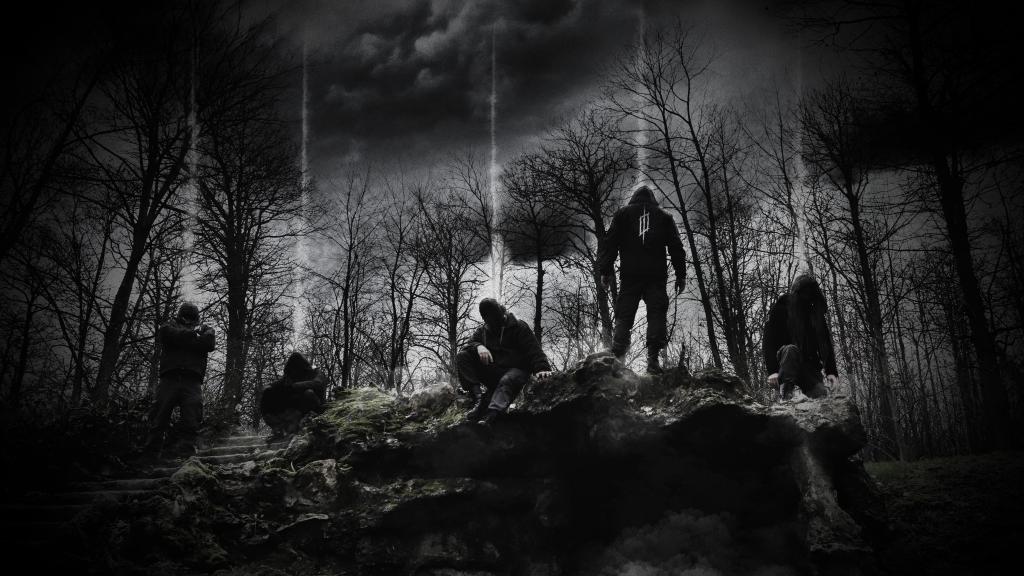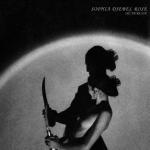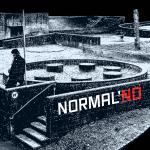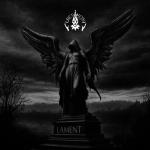Ecr.Linf, for Ecrasons l'infâme - let's crush the infamous: Voltaire's formula for fighting obscurantism gives its name to this new black metal band founded by Krys Denhez (vocals, the man's been everywhere: he's worked with Demande à la Poussière, 6:33, Jarell, Ophe...) and Dorian Lairson (guitar, but also authors of all the visuals, ex-Jarell). The two musicians have been joined by Jiu Gebenholtz on bass, Rémi Sefarino (ex-Hyrgal, ex-Svart Crown, Igorrr) on drums and Jean Lassalle (ex-Jarell) on keyboards.
With their atypical approach, Ecr.Linf seize the code of the genre to offer an intense and exciting personal version, whose musical and thematic depth has captivated us. With Belluaires, their debut album, due for release on 22 March on Source Atone Records (pre-order now), it was time to give them the chance to tell us a little about this project, which we'll be talking about again soon.
From prehistory to the present day, history has unleashed such violence on mankind that we would be inclined to find an ideal culprit. So we could start making a list of all the historical figures, accusing them of having caused humanity to fall into its greatest failings: a world war here, a genocide there... But that would hardly help us to change mentalities, as we would once again be blaming others (however vile they may be).
So what is this common denominator? The historical, economic or ideological context? A bit of all of the above, but if we go a step further upstream, it's the trial of the human soul that we need to conduct.
For you, what is the infamous?
Dorian: In Ecr.Linf, the aim was already to find the infamous within us, our wild monsters. The album is called Belluaires: gladiators fighting bare-handed with a lion in the arena. Then there are all our beliefs, religious or otherwise, the things we really want to hold on to like a rock but which can turn out to be something very stinky on the outside. So we need to find the infamy within ourselves, to be aware of it so that we can fight it more effectively. This infamy means finding what we denounce around us, but within ourselves.
Krys: We talk a lot about preconceived ideas, this logic of nature and nurture that ends up making us a disgrace in someone else's eyes. We wanted to reflect on this, quite simply, and try to stop believing, in order to better understand why we should believe. These are two different things.
What brought you to this path?
Krys: Oh, Santiago de Compostela and all that! More seriously, there's nothing religious about it at all, it's spiritual in a global sense, in the human connection but not at all in the religious sense. There are the trials of life, too.
Dorian: There have been a lot of events, it's a whole journey. Personally, I've been through a few stages that have helped me gain a new understanding of the world. I'm still on my way, and it's only the beginning...
If you want to talk about the infamous, do you have to be infamous yourself?
Krys: There has to be an element of darkness, that's obvious. You can't talk about things you don't know about, or at least it's difficult, because you run the risk of fantasising about them. I know I have a lot of darkness and violence inside me and at some point it has to come out... Above all, I've had it inside me for years and I'm trying to control that dark side so that it serves as food for thought rather than just being diffused hatred and gratuitousness. Everyone has something vile inside them. We can always judge the actions of others in the sense that there is always a moment when we disagree on something and find ourselves at odds. This discrepancy creates rejection, rejection creates hatred and then it creates all sorts of things, so the idea for us was to take a step back. It's not easy, you can't do it all the time, even with a five year old I can't do it and I get very frustrated very quickly!
Dorian: Especially with a five-year-old! Anyway, anyone who says they don't have any infamy in them is a liar.
Krys: It's true that often the most infamous people are really nice and have the most beautiful faces...
You condemn and denounce our wrongs by making black metal, a genre in which many artists like to play the villain. Did this ever seem like a paradoxical approach?
Krys: There's a kind of rebellion there. We don't want to give any lessons in our lyrics, they're about us. The rebellion is there: we're saying "listen, we're really mean about certain things, we've understood things that disgust us and we're telling you about it". There's no longer any need to be bad just for the sake of being bad: who still finds it scary these days?
Dorian: Maybe it's because we're old fogies, but what was sulphurous thirty years ago, what impressed me at the time, today I find a bit... Well, let's just say that sometimes it even surfs on the ridiculous and we thought we really shouldn't do that. We couldn't see ourselves doing that, even if we go and see these bands, that's ok, it's just that it's not what we want to do, given our approach.
Even musically, you play with the classic codes: there's synth, accordion...
Dorian: It's true that we're less codified. We've tried to break the codes. I come from a black metal background and I started my first band when I was 16. It was still very anecdotal at the time, the Scandinavian scene was just arriving... There's no point in playing around with the same codes these days, doing the same thing you did thirty years ago. I didn't see the point: if we were going to do something, I'd rather we put our sincerity, our sound, our style, everything we've tried to find into it to say it's "our" black metal.
Krys: That's the way we read the genre at the moment. Some people will adhere to it, others less so. We've had a lot of very interesting discussions with people who do true black metal and it's been interesting because they want to recognise that we do black metal but they think it's too modern! It's quite funny. It's all a question of nuances and perceptions: from our point of view, we've reused the codes because our riffs are very 90s-2000s oriented but it must be the vocals that aren't delivered in the same way... We wanted to break away from that a bit because it's true that there are some great bands in black metal, but it can seem a bit slick if you keep using the same codes over and over again. We thought that was weird because it ended up smoothing out the intensity, it codified too much a style that was originally meant to be outside the codes and which nowadays finds itself self-caricaturing... That's where we gave ourselves the freedom to say fuck it, we're out of step, we do what we want and we'll see how it's perceived. We wanted to make an album that sounded like us and that we would also want to listen to.
There's a certain irony when you talk about fighting obscurantism: religious fundamentalists are unlikely to come across your music... and on the other hand, those who listen to it may be just as sectarian and not necessarily understand that we're talking about them too!
Dorian: Exactly! It's easy, when you denounce, to become what you denounce. That's often the case.
You said you didn't want to teach lessons... Your aim isn't to save the world through the power of black metal?
Krys: Oh well, that's going to be difficult...
Dorian: No! If we manage to save our own personal world, that would be a great achievement, it's very redemptive... The punchline from Le Désespoir du Prophète (Prophet's Despair) - "De mon seul être dont je suis maintenant l'unique roi" (Of my only being, of which I am now the sole king) - sums up everything we've set out to do, everything we're doing right now.
The project started with the two of you. Other musicians joined in. How did it all come together?
Dorian: The first demos and the skeleton of the songs were really Krys and me. Then there's Jiu on bass who brings all his background to the table. He'd been in metal bands before, but he'd never been in a black metal band. Like us, he'd been listening to black metal for thirty years and it was very close to his heart, so we didn't even have to ask him - he came to us! We have the same references, the same habits... Then there's Jean on keyboards, who used to play with us in a melodic death band called Jarell. We hadn't seen him for ten years and he said he didn't want to make any more music... unless he found a black metal band! We looked at each other and said "listen, you've got a month before we go into the studio"! He rolled his eyes, but it didn't take him long to respond, and his contribution was truly enormous. He really brought out the best in the programming I'd planned and, as we'd already worked together, the automatisms quickly returned. Rémi was the drummer for Hyrgal, Svart Crown and now Igorrr. Krys had shared a bill with him, so we kept in touch and little by little he joined us.
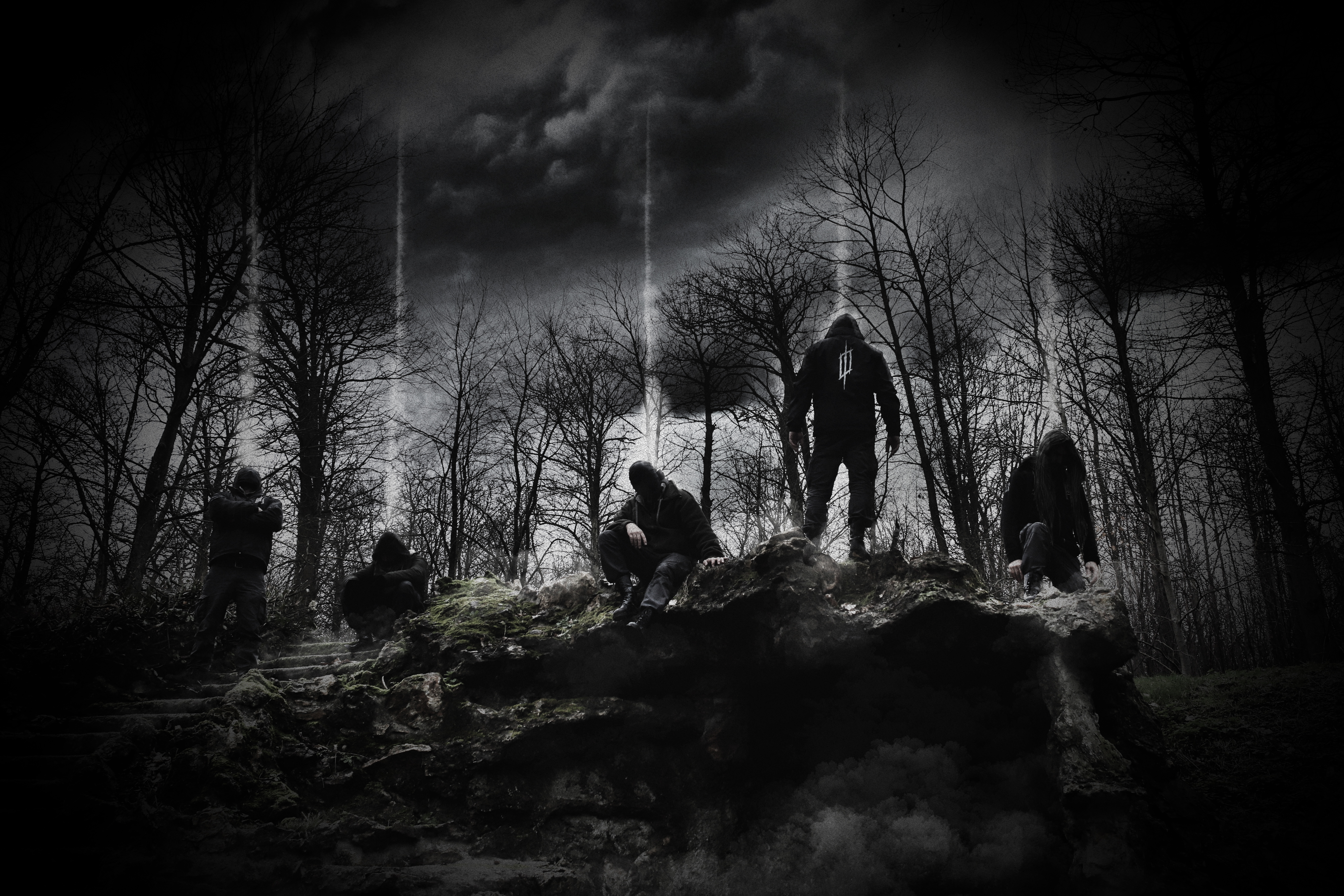
The two of you had already worked together. What made you decide to start a new project rather than reactivate an old one and develop it further?
Krys: Quite simply because we'd all slammed the door on Jarell, first Dorian and then myself. It's part of our history, part of our background, and we're proud of it, but we wanted to move on to something else and the music we play now is nothing like that. It would have been strange to go back to the same name because maybe it would have reminded people of something... Instead, we wanted to choose a name that nobody knew, so that people would be more interested in the music than in the line-up. For us, the point is to make music and communicate it. I always find it tricky to come back with the same name but a different band. It wouldn't have made sense: there were six of us in Jarell and now there would only be half. It would be like Axl Rose continuing Guns'n'Roses on his own! And then the approach is different, we're completely on to something else.
You mention Voltaire as an influence. Did this literary background determine your choice to sing in French, or did it come naturally to you, Krys?
Krys: I've sung in English quite a lot in the past... But when I came back to France after Dubai, I was fed up with the English language. I always have the impression that in English everything means something quickly, and that's great, but sometimes it lacks substance. I think that's a shame: I try to write texts with substance but I end up reducing the vocabulary because certain expressions don't work in English. It would have been absurd to use Voltaire as a reference for Ecr.Linf and to write in English. It didn't make sense to us at the time. Above all, we wanted to play with the words, to take their rhythm and try to find a meaning in the whole thing. It took a lot of hours of writing and discussion. We didn't just write the texts, we tried to get everyone in the group to adopt them so that everyone knows what we're talking about, even if everyone has their own understanding. At the same time, we're also preparing the release of a book that will include all the texts but which will also be a little more detailed. We've been working on the texts to give them more substance and explain our thinking on a number of issues, because we've realised that certain words can sometimes be misunderstood or misperceived. So we want our message to be clear. Excuse me, this is going to be my grievance of the day, but I find this trend despicable, everything is a bit overused, for example the word 'ancestor' is associated with a certain extreme right-wing dregs or whatever... But there's nothing like that! Take the word literally, read its definition: there's nothing like that in it.
Dorian: It's true that when we used the word "ancestor", people asked us if we were sure of what we were doing...
It's a bit of a masterstroke of the far right to have made their own things that originally had nothing to do with them...
Krys: It's malice in a way, it's in the details...
Dorian: We tried to find a way of avoiding the word 'ancestor', looking for a synonym, but it didn't fit... We ended up considering self-censorship even though we were denouncing it! So we left it, full stop.
Krys: In response, we decided to produce a book, which will be published by Flammes Noires in April, to continue the adventure around my texts and Dorian's visuals. It'll be a beautiful object and we'll have a kind of total art.
The lyrics are not only in French but also very intelligible.
Krys: That's our french variety music side, Michel Sardou and all that!
Dorian: We clearly wanted to move away from traditional black metal vocals. We got a lot of good feedback on that. Just before we went into the studio, about half the lyrics were very intelligible but another part was more 'traditional'. But from the very first takes, we started with the intelligible parts and we immediately decided that we had to do the whole album like that! In terms of vocals and sincerity, it was really what we had in our guts and that's the approach we wanted. We use our own codes. It's a conscious decision. The French language sounds good when it's well worked out like that.
Yes, it works very well. We're thinking in particular of La Danse des Crânes and that brilliant accordion. Where did that idea come from?
Krys: The accordion line was there from the start, but it was on the synth. We thought it was a pain in the arse because we wanted something more organic, so we ended up with a sort of waltz at the end, reminiscent of a drunken bar... We're in that kind of Pigalle atmosphere, which is a band we listened to when we were younger and we thought "shit, we want this accordion and we end up going poof-poof with a synth", we felt a bit stupid! To be honest, there are some plug-ins that work really well, but for the accordion all the ones we tried just didn't do the trick.
Dorian: We wanted to record everything without any artifice, so that bothered us. There's obviously some mixing involved, but we wanted to use real instruments and make sure that everything you hear on the album is actually played. The accordion, because it's a three-beat, is really reminiscent of the waltz and the ancestors, etc... We really wanted to integrate all our ancestors, whether they're good or not we don't care, we have to see them to avoid remaining in denial and ending up becoming slaves to our denial. The aim was to transcend all the history that preceded us... And we were looking for an accordionist to do that. I thought we didn't know any, but in fact we did. I've got a friend who I haven't seen in a long time and he's not into metal at all, he's more into gypsy jazz. He's really a master of this instrument. When I asked him if he'd like to do a featuring with a black metal band, he was really into it, he'd never done it before and he said yes straight away! I gave him the track, the synth line and this guy, in the studio, did the same line in fifteen different styles, like Irish, Slavic, etc.! It was really interesting. And the fact that we recorded it means you can really hear the accordion bellows, which we left hanging around a bit after the track to bring out the best in it and make it grab you by the guts.
The texts are very elaborate. Did you write everything or is there a certain amount of quotation?
Krys : I wrote everything. There are no quotes. On the other hand, a lot of work went into the passages and the vocal lines - we really tried to chisel things out.
Dorian: You have to imagine that the lyrics are generally twice as long as those on the album.
Krys: Yes, hence the book behind it, because there was a lot more to say.
The visuals are very elaborate. Even the press kit we received is very beautiful, very elaborate: the photos, the videos, even the fonts chosen for the digital file (which will be the same as in the printed sleeve, editor's note)... Have you already thought about your live scenography to extend this highly visual universe?
Krys: We're in the process of putting together the live team, mainly because our drummer Rémi is very busy with other projects, so we're auditioning others. We're not going to do any concerts as soon as the album comes out, but we're going to put it off until September or October. We really want to take our time. We don't know if we're going to make a video or not, we don't know anything! For the moment, the most important thing for us is to bring out the music as we recorded it and then we'll think about the show. We've got some ideas, but we need to test them out. We don't want to hide behind gimmicks either. I've done that in quite a few bands and I find that in the end you can end up trapped in it: if you do corpse paint, then you'll have to do it all the time, if you have video, then there'll have to be video all the time, etc. It's complicated and it's the kind of thing that immediately types the band, so we have to think about it, it has to make sense.
In the band's presentation, it says that you're putting humanity on trial with this first album. So, finally, what's your verdict? And the sentence?
Dorian: When we said we were putting humanity on trial, we meant ourselves first. We hear so much talk these days, be it political, philosophical or otherwise, saying that the fault lies outside ourselves: it's the neighbour's fault, the political party I don't like, the context, the war, etc... So we wanted to try and integrate the fact that we're just a small drop in the mess. Trying to 'fix humanity' without first trying to fix ourselves is, for me, really demagogic. And if between now and our death we manage to make some progress in that direction, it won't be bad...
For something that's presented as misanthropic, your words are pretty nuanced!
Dorian: Oh, absolutely, but then we weren't trying to...
Krys: Well, that's when Dorian's talking! I'm a bit darker than he is! On a more serious note, humanity is what it is, with its faults. There's no recipe, no court, no sentence. Well, the sentence is irrevocable: if there were fewer idiots, there would be less idiocy, quite simply. It may be a bit violent, but in my opinion, at some point common sense has to become important again, given the permanent individualism in which we live. We're all shutting ourselves off in our own bubbles, becoming complete idiots...
Dorian: It's funny because the more we individualise, the more people seem to be looking for something in common, a tribe. It's as if we're looking for another identity by losing certain values, be they cultural, religious or whatever. Sometimes I have the impression that I only share the same language as the people I meet, but I don't really know what it is that makes people relate to each other. I think it's important to have common values too. The more we become individualised, the more we seem to look for small groups to belong to, including ourselves: we've got our own little tribe in black metal! We've got to be able to look elsewhere and accept what comes along. So I'd say it's an exchange, ultimately, more than the trial.
So it's really not so misanthropic after all!
Krys: I've always said that he's the group's most charming asset. You'd better not ask me!

